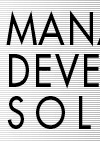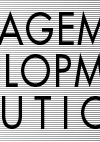|
Training Programs
Performance Management Supervisor Training Series
Each program is a half-day, with interactive exercises and valuable reference material.
Job of a Supervisor
Avoid depending on a "one-style-fits-all" approach to supervision by learning the different leadership styles and when to use each.
| > |
Assess your predominant leadership style |
| > |
Adapt your leadership style to the employee and situation |
| > |
Understand the difference between assigning, delegating and abdicating
|
Effective Communication Skills
Be more effective in your interactions by understanding your own and others' communication style, and learning how to adapt your approach to fit others' preferred communication style.
| > |
Understand your communication style and learn how to adapt your communication style to fit the situation and others |
| > |
Apply the fundamentals of verbal and non-verbal communication |
| > |
Improve your listening skills
|
Setting & Communicating Performance Expectations; Appraising Performance
Determine what level of performance you should expect from your employees and learn how to give performance feedback, formally and informally.
| > |
Describe performance in behavioral terms |
| > |
Appraise performance objectively |
| > |
Conduct the performance review session effectively |
Motivating & Coaching Employees
Maximize your employees' strengths and gain their commitment through understanding their motivators.
| > |
Understand what motivates you and others |
| > |
Give feedback (especially criticism) in a motivational and productive way |
| > |
Learn the coaching process to achieve better performance |
Counseling & Disciplining Problem Performers
Know what you should do when dealing with a problem performer … and proper procedures if it becomes a disciplinary case.
| > |
Understand the cause(s) of performance problems |
| > |
Conduct a performance counseling session effectively the first time |
| > |
Learn the steps of progressive discipline and how to document poor performance |
Managing Conflict/Work Group Effectiveness
Get the best results from a team by learning how to manage conflict and focus on effective team member and leader behaviors.
| > |
Determine your approach to dealing with conflict |
| > |
Understand alternative and appropriate ways of managing conflict |
| > |
Recognize the characteristics of an effective team |
Copyright © 2015 Management Development Solutions. All rights reserved
|






